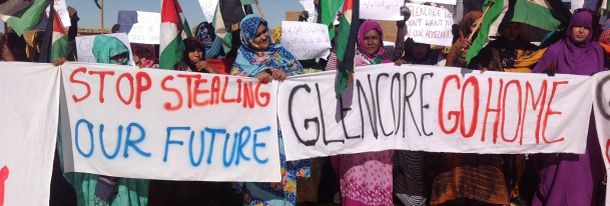FDFA
- Les relations entre la Suisse et le Rwanda entrent dans une nouvelle
phase: développement par la formation et coopération multilatérale (fr)
Bern, 22.05.2017 - «Il est temps aujourd’hui de faire le point sur nos
relations et d’ouvrir une nouvelle phase». Cette proposition du
conseiller fédéral Didier Burkhalter a été reçue positivement par la
ministre rwandaise des affaires étrangères Louise Mushikiwabo lors d’une
rencontre officielle à Berne. Concrètement, les deux ministres ont
décidé d’élargir les relations entre les deux pays à des domaines
d’intérêt commun, en particulier au niveau multilatéral et en matière de
prévention des conflits. Ils ont aussi revu les priorités de la
coopération au développement en mettant l'accent sur le soutien à la
formation professionnelle, l’accès à l’eau et la gouvernance dans la
région des Grands Lacs, dont font également partie le Burundi et la RDC.
À l’issue de leur entretien, les deux ministres ont signé un accord
bilatéral sur le transport aérien.
International Law in Switzerland
Montag, 22. Mai 2017
Freitag, 19. Mai 2017
Mémorandum d’entente (MoU) renforçant les relations bilatérales entre la Suisse et la Jordanie.
FDFA - Le renforcement des relations entre la Suisse et la Jordanie et la crise humanitaire syrienne au centre des préoccupations de Didier Burkhalter à Amman (fr)
Bern, 19.05.2017 - Le conseiller fédéral Didier Burkhalter a signé, vendredi à Amman avec le ministre des affaires étrangères jordanien M. Ayman Safadi, un accord (mémorandum d’entente MoU) renforçant les relations bilatérales entre la Suisse et la Jordanie. Le chef du Département fédéral des affaires étrangères (DFAE) s’est ensuite rendu au camp de réfugiés d’Azraq où il a officiellement mis en service une installation d’eau financée par la coopération suisse et permettant aux quelques 35’000 Syriens réfugiés dans ce camp d’avoir un accès direct à de l’eau potable.
WTO OPENS ONLINE REGISTRATION FOR 2017 PUBLIC FORUM
Online registration for the 2017 Public Forum is now open.
Entitled “Trade: Behind the Headlines”, the Forum will provide an opportunity
for participants to go beyond the rhetoric and examine the opportunities trade
can offer and the challenges it can bring. The Forum will be held at the WTO
headquarters in Geneva from 26 to 28 September.
> News item:
Glencore is departing Western Sahara
| http://www.wsrw.org/a105x3879 | ||||||||
|
The biggest international company currently present in occupied Western Sahara is ending its operations in the territory, according to Swiss media. |
||||||||
| Published: 11.05 - 2017 11:59 |
| The biggest
multinational company currently working for the Moroccan government in
Western Sahara, Glencore PLC from Switzerland, is leaving its oil
operations offshore Western Sahara. "According to information from the company, Glencore has now withdrawn from Foum Ognit. According to Glencore, discussions are underway to withdraw from the second block, Boujdour Offshore Shallow", The Neue Zürcher Zeitung (NZZ) wrote today. NZZ is one of the biggest newspapers in Switzerland. The two deals were originally signed with the Moroccan government - whose claims to Western Sahara are rejected by the UN and the international community. Glencore used to hold a 18,75% interest in Foum Ognit, an oil exploration block offshore occupied Western Sahara. The website of the operator of the block, New Age, indicates that ownership is now transferred to the latter. As such, New Age today controls 75% of the block, while until recently it only controlled 56,25%. The information about Glencore's exit from Foum Ognit has also been confirmed to Western Sahara Resource Watch (WSRW) by shareholders of the company. The move probably took place early May or late April. WSRW in February 2017 wrote that Glencore and New Age were undertaking seismic studies on Foum Ognit. Glencore still remains, however, operator of the Boujdour Offshore Shallow, the neighbouring block to the north. According to the information that NZZ gathered from the company, and from what WSRW has understood from shareholders, Glencore is looking for a way out of this engagement on Boujdour Offshore Shallow. Numerous international investors have raised the controversial Western Sahara licenses with the company, and many banks and pension funds have blacklisted Glencore over the matter over the course of the last year. Some of those are mentioned here. Here is for instance an 8-page-analysis from a Norwegian investor upon deciding to no longer invest in Glencore. "We welcome the decision of Glencore. Signing agreements with the Moroccan government for oil exploration in Western Sahara is fundamentally unethical. Glencore's exit is a good contribution to the peace process. As long as Morocco can partner with foreign companies for oil search in the territory that it occupies, Morocco will not return to the UN negotiating table", Sylvia Valentin of Western Sahara Resource Watch stated. Western Sahara has been under partial occupation by Morocco since 1975. On 21 December 2017, a judgement from the Court of Justice of the EU concluded that EU-Morocco trade deals cannot include Western Sahara without the specific consent of the people of the territory. In 2002, a UN Legal Opinion concluded in the same manner. |
More countries demand UBS client names
|
Sweden and the Netherlands have joined a growing list of
countries demanding the names of UBS bank clients suspected
of dodging taxes. France and Spain have previously asked for Swiss
administrative assistance following the same tip-off from the German authorities.
The Swedish and Dutch requests, submitted in October 2016 and February 2017
respectively, were reported in the latest edition of the Swiss Federal
Gazette, which acts as a general public notice of such actions.
It sends a further message that the net is closing on wealthy
tax cheats who hid their money in Swiss bank accounts. And the requests also
confirm that Switzerland is prepared to relax its former tough stance on
rejecting so-called fishing expeditions from foreign jurisdictions. In the
past, countries requesting Swiss administrative assistance to track down tax
dodgers have been required to name the people they suspected of breaking the
law. But group requests are now becoming common – asking ...
|
Abonnieren
Posts (Atom)
